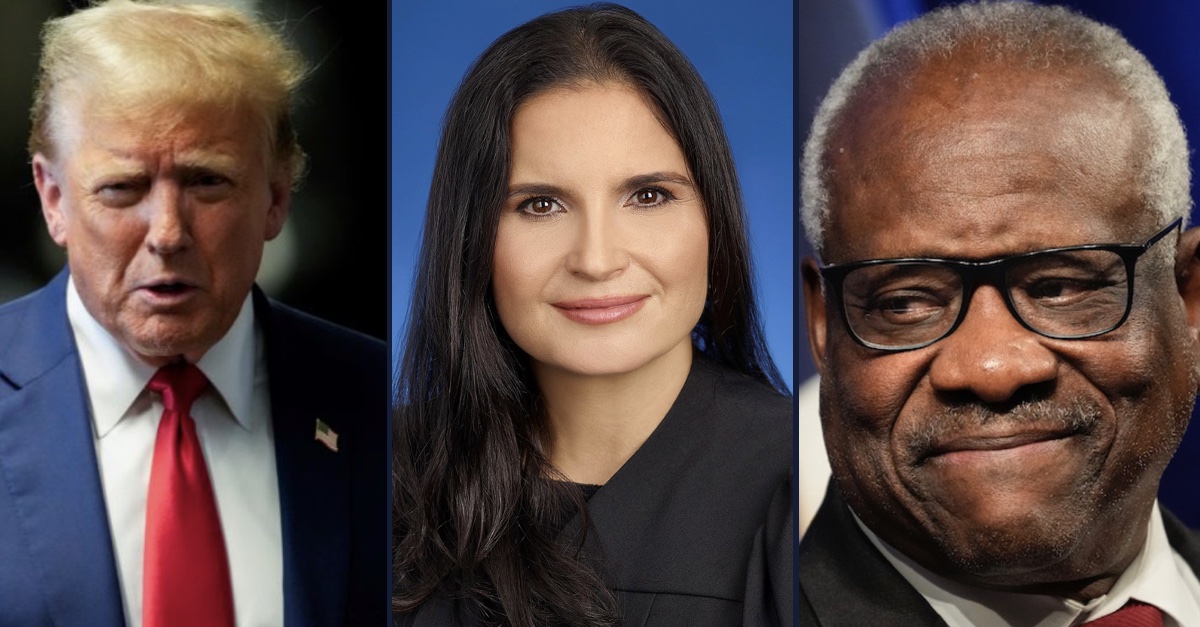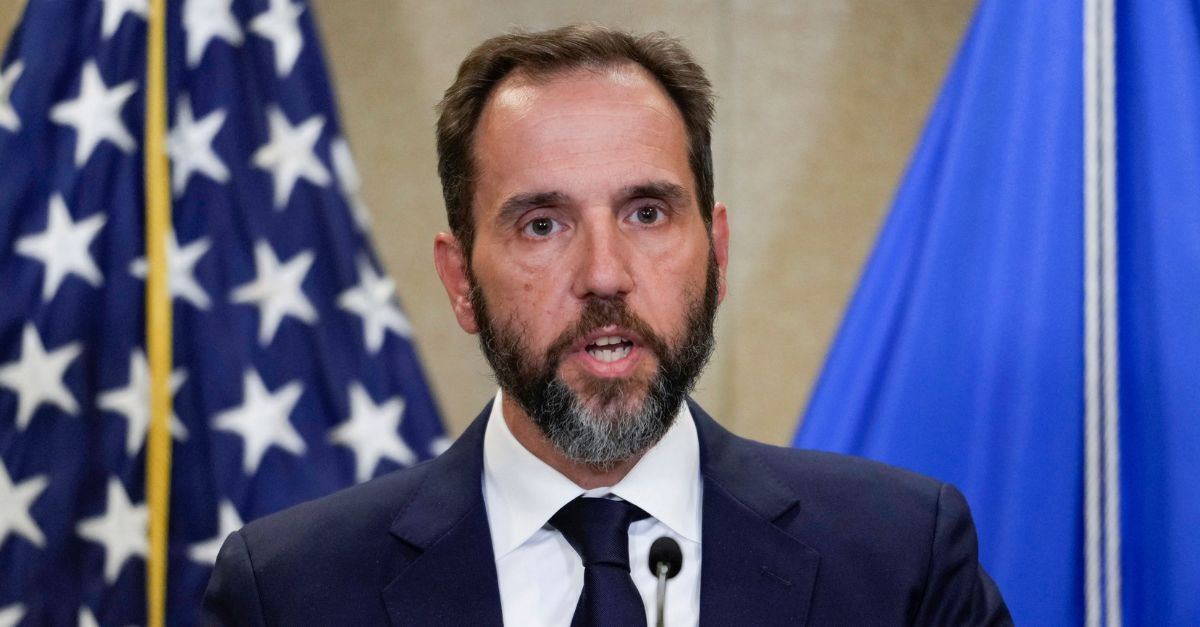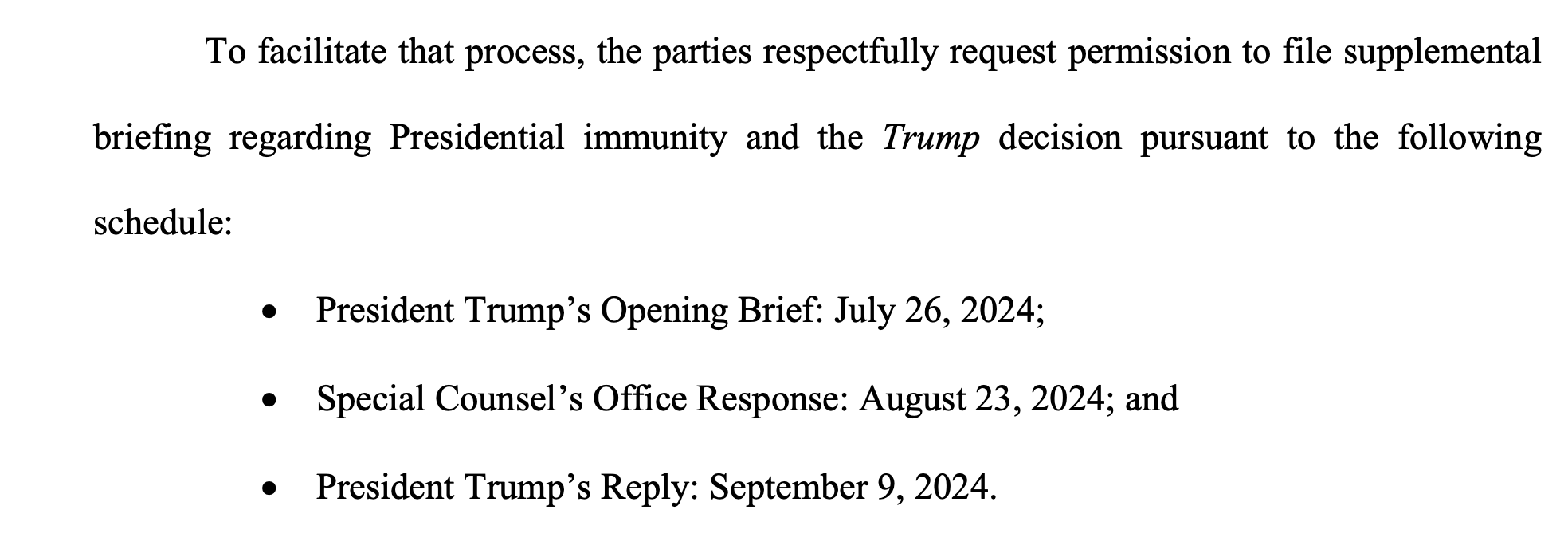
Donald Trump (AP Photo/Julia Nikhinson, Pool); U.S. District Judge Aileen Cannon (U.S. District Court for the Southern District of Florida); Justice Clarence Thomas speaks at the Heritage Foundation on October 21, 2021 in Washington, D.C. (Photo by Drew Angerer/Getty Images).
Adding to the fallout, defense attorneys for Donald Trump on Friday told the judge in the Mar-a-Lago case that the Supreme Court's immunity decision "guts" Jack Smith's "no immunity" arguments and, as a result, they said the case should mostly be put on hold.
In a notice of supplemental authority submitted to U.S. District Judge Aileen Cannon, the Trump team contends that the Supreme Court has helped the former president on multiple fronts.
"Trump guts the [Special Counsel's] Office's position that President Trump has 'no immunity' and further demonstrates the politically-motivated nature of their contention that the motion is 'frivolous,'" the filing said. "Trump also confirms that the Office cannot rely on 'official acts' evidence" in the Espionage Act case.
The defense also pointed to Justice Clarence Thomas' concurrence, which, as Law&Crime reported in the immediate aftermath of the Supreme Court's decision, expressed Thomas' belief that Jack Smith's appointment is "invalid unless a statute created the Special Counsel's office and gave the Attorney General the power to fill it 'by Law.'"
"Justice Thomas's concurrence in Trump adds force to the motions relating to the Appointments and Appropriations Clauses," Trump's attorneys said. "Justice Thomas cited Justice Scalia's Morrison dissent, which is consistent with Justice Kavanaugh's comment at oral argument in Trump that Morrison was 'one of the Court's biggest mistakes.'"

FILE – Special counsel Jack Smith speaks to the media about an indictment of former President Donald Trump, Aug. 1, 2023, at an office of the Department of Justice in Washington. (AP Photo/J. Scott Applewhite, File)
Thomas' concurrence largely echoed conservative amici curiae (Latin for "friends of the court") that Cannon recently heard oral argument from on the legality of Smith's appointment as special counsel.
Those amici asserted "private citizen" Smith's appointment by U.S. Attorney General Merrick Garland violated the Constitution because he was neither confirmed by the Senate nor sufficiently "authorized" by statute.
"In short, the idea of a chief prosecutor not authorized by a clear statutory provision or with the approval of the Senate is a jurisprudential dinosaur, and should be declared extinct," the amici's brief argued.
Thomas clearly agreed with those points.
"Given that the Special Counsel purports to wield the Executive Branch's power to prosecute, the consequences are weighty. Our Constitution's separation of powers, including its separation of the powers to create and fill offices, is 'the absolutely central guarantee of a just Government' and the liberty that it secures for us all," Thomas wrote. "There is no prosecution that can justify imperiling it."
The defense separately filed a motion on Friday that demands a briefing on the "implications" of the Supreme Court decision on Trump's unresolved motion to toss the case on grounds of presidential immunity.
The motion looks to bring a halt to the case "until President Trump's motions based on Presidential immunity and the Appointments and Appropriations Clauses are resolved."
The proposed briefing scheduled, if accepted, would drag out into September, ever closer to Election Day.

Although casting their ask as a "modest" request for a "partial stay," Trump lawyers are asking Cannon to "stay all […] proceedings" in the case other than the gag order battle over the former president's Truth Social posts, which the special counsel said were "grossly misleading" and "inflammatory" and put law enforcement and possible trial witnesses in "foreseeable danger" with falsehoods that the feds were authorized to use "deadly (lethal) force" when they searched Mar-a-Lago.
"The partial stay should include a pause on CIPA litigation—which is extremely resource-intensive for the defense, the Court and its staff, the security and staff responsible for making the courthouse and relevant secure facilities available, and the Classified Information Security Officer—because the Court's rulings on the Presidential immunity issues will frame any necessary admissibility and substitution decisions under CIPA § 6," the filing said.
Comments